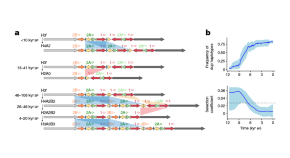
Anthropology is the study of humans, their close relatives and their cultural environment. Subfields of anthropology deal with hominin evolution and the comparative study of extant and past cultures.

The region of the human genome that harbours genes encoding amylase enzymes, which are crucial for starch digestion, shows extensive structural diversity. Amylase genes have been duplicated and deleted several times in human history, and structures that contain duplicated versions of the genes were favoured by natural selection after the advent of agriculture.
News & Views 04 Sept 2024 Nature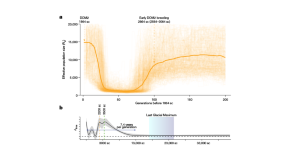
An analysis of ancient genomes reveals an explosive geographical and demographic spread of modern domestic horses about 4,200 years ago. The findings counter the idea that horses accompanied and mobilized the mass migration of humans from the Eurasian steppes about 5,000 years ago.
News & Views 23 Aug 2024 Nature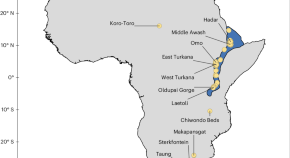
Using modern mammals as analogues, we investigate how spatial bias in the early human fossil record probably influences understanding of human evolution. Our results suggest that the environmental and fossil records from palaeoanthropological hotspots are probably missing aspects of environmental and anatomical variation.
News & Views 22 Aug 2024 Nature Ecology & Evolution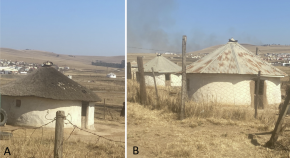
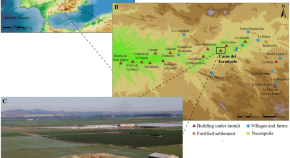
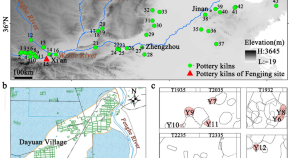
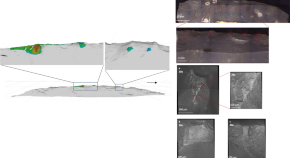
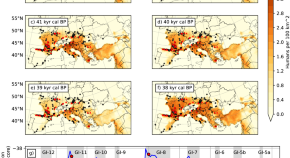
Anatomically modern humans dispersed through Europe during the Upper Palaeolithic. Here, the authors model this dispersal combining archaeological, paleoclimate, and palaeoecological data and investigating how these variables impacted human demographic processes.
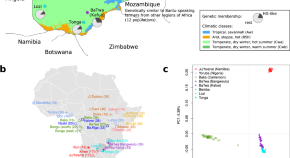
Few genetic studies have focused on BaTwa populations in southern Africa. Here, the authors have examined the genetic ancestry of 80 individuals from two isolated BaTwa communities in Zambia, finding evidence of hunter gatherer and Western African ancestry.

The region of the human genome that harbours genes encoding amylase enzymes, which are crucial for starch digestion, shows extensive structural diversity. Amylase genes have been duplicated and deleted several times in human history, and structures that contain duplicated versions of the genes were favoured by natural selection after the advent of agriculture.
News & Views 04 Sept 2024 Nature
Urban archaeology in the humid tropics advances a new and diversified ontology of urban spatial forms, functions and processes that enriches and expands the frame of reference for what cities were in the past, what they are in the present and what they can be in the future.

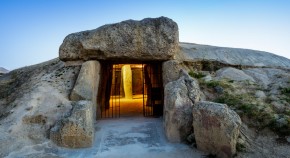
A survey of the Dolmen of Menga suggests that the stone tomb’s Neolithic builders had an understanding of science.